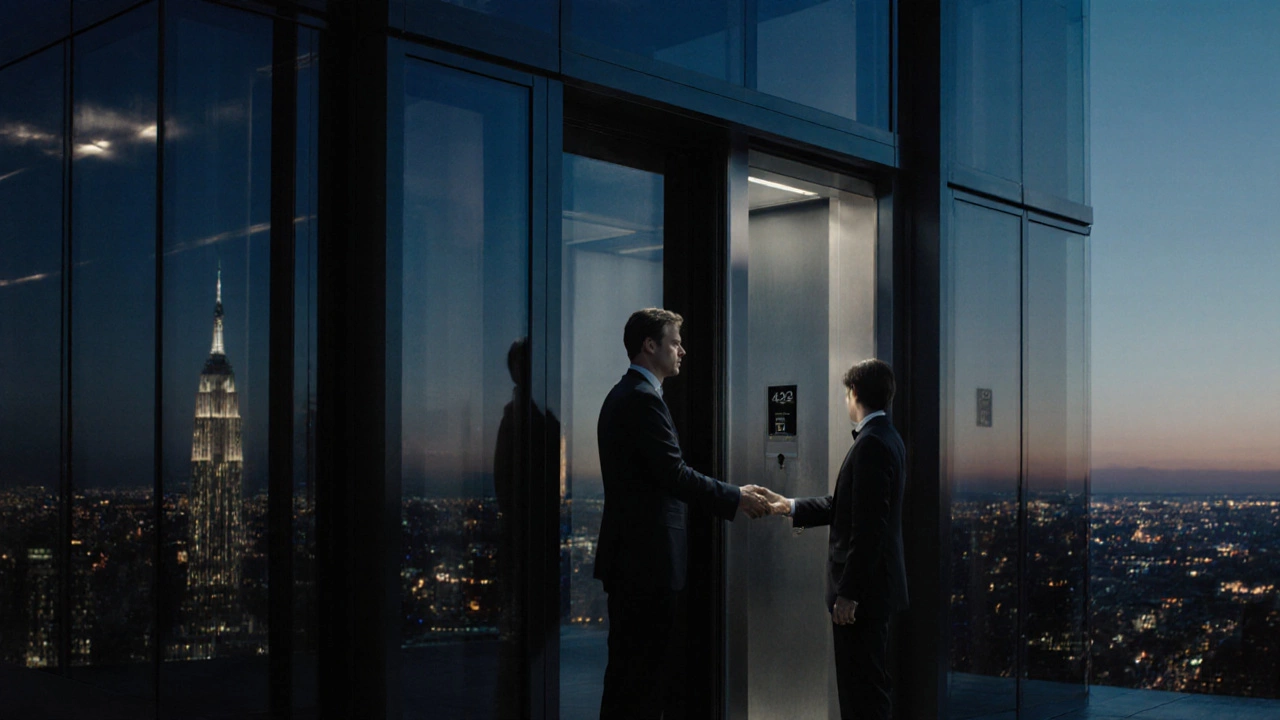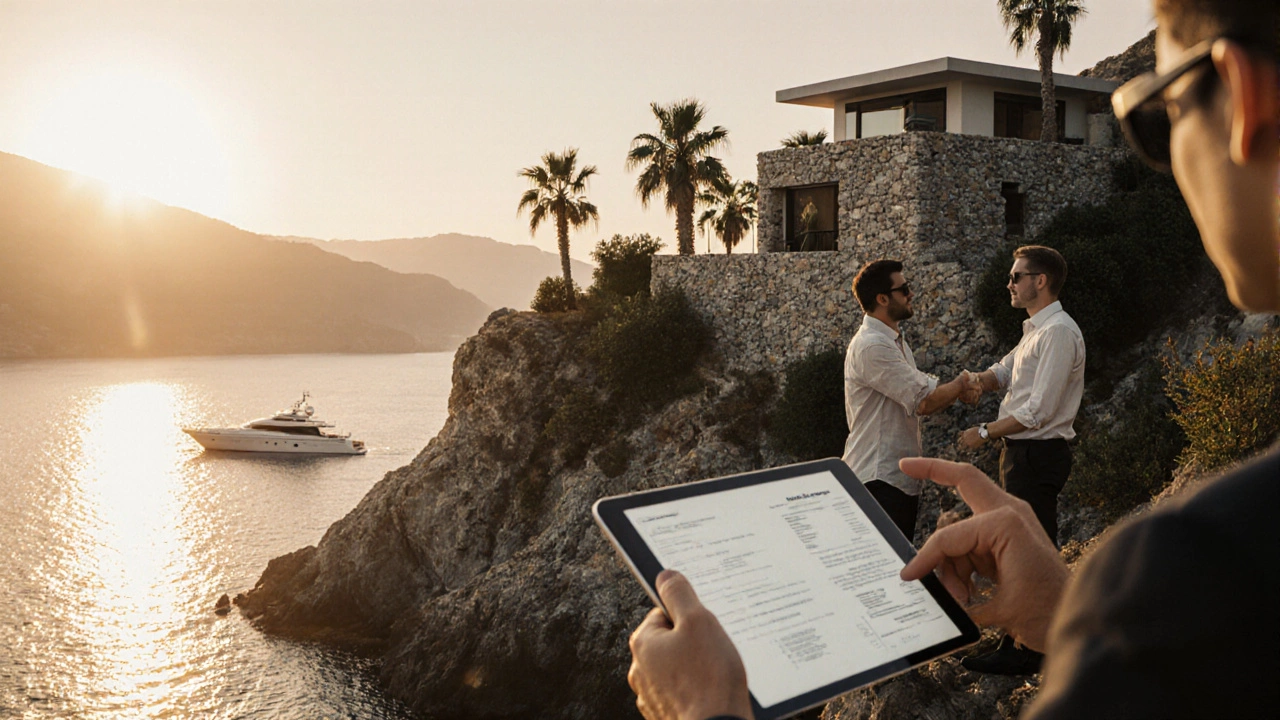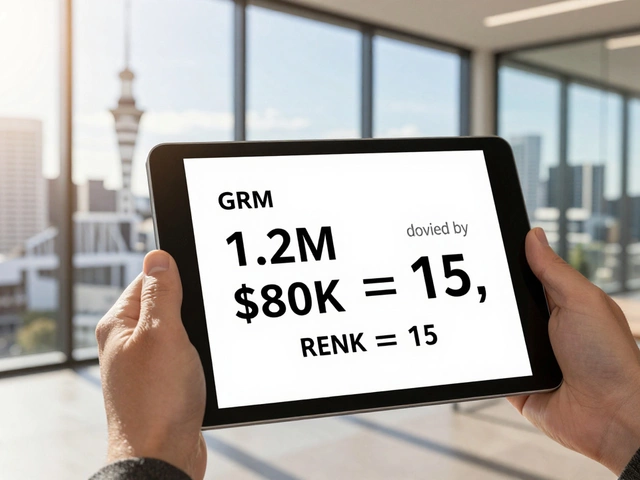Where Do the Rich Buy Property? Real Locations, Real Strategies

Strategic Property Investment Calculator
Where to Invest Strategically
Based on the article's findings, select your top priorities to identify optimal international property locations. The wealthy prioritize tax efficiency, privacy, and political stability over public recognition.
How It Works
Based on your selections, this tool identifies locations mentioned in the article where the wealthy strategically invest for wealth preservation. The tool uses factors like tax advantages, privacy protection, and political stability.
Your Strategic Property Recommendations
When you hear that someone bought a $15 million penthouse in Manhattan or a private island in the Maldives, you might think it’s luck, inheritance, or magic. But the truth is, the wealthy don’t just buy property-they strategize it. They don’t wander through open houses or scroll through Zillow. They use systems, networks, and locations most people never even know exist.
They Don’t Buy Where You Think
Most people assume the rich buy in the same places as everyone else-downtown condos, suburban neighborhoods, or trending areas on Instagram. But that’s not how it works. The ultra-wealthy avoid crowded markets. They look for exclusivity, privacy, and long-term value that doesn’t show up on public listings.Take Geneva, Switzerland. It’s not flashy like Monaco, but it’s where billionaires store assets and buy discreet, high-security residences. Or Singapore-where foreign buyers can’t touch residential land, but can own luxury condos with 99-year leases. The rich don’t just buy houses. They buy legal structures, tax advantages, and political stability.
In London, the top 1% aren’t buying in Notting Hill anymore. They’re in Mayfair, Knightsbridge, and now even the quieter edges of Hampstead, where properties come with private gardens, underground parking, and no visible street numbers. In New York, the richest don’t live in the Upper East Side-they live in the top floors of 432 Park Avenue or One57, where units are sold off-market through private brokers with zero public listing.
Offshore and Hidden Markets Are the Real Play
The rich don’t just buy in their home countries. They spread out. Why? Because they want to protect wealth, avoid political risk, and reduce taxes. And they don’t do it through public portals.Portugal’s Golden Visa program ended in 2023, but the wealthy already moved on. Now, the hotspots are places like Cyprus, where you can buy a €2.5 million property and get residency without living there. Or Georgia, where foreigners can own land outright, pay zero capital gains tax, and access EU markets through trade deals. Even Montenegro is seeing a surge-private villas along the Bay of Kotor, sold through local lawyers who handle everything in English.
And then there’s the Caribbean. Not the tourist resorts. Think Anguilla, St. Kitts, or Nevis. These islands offer citizenship-by-investment programs. Buy a $400,000 property, get a second passport, and you can live anywhere in the world. No one talks about this on real estate blogs. It’s all done through private networks, family offices, and offshore law firms.
How They Find These Properties (It’s Not Online)
You might think the rich use Zillow, Redfin, or Rightmove. They don’t. Less than 5% of luxury properties are listed publicly. The rest? Sold through exclusive channels.Private real estate networks like Knight Frank’s Global Luxury Index, Savills’ Ultra-High-Net-Worth Division, or Christie’s International Real Estate handle most high-end deals. These firms don’t post listings online. They send encrypted emails to a curated list of clients. If you’re not on their list, you won’t see the property-even if it’s on the market.
Some buyers use family offices-private wealth management teams that have dedicated real estate analysts. These teams scout properties for years before making a move. They’ll buy a building in Tokyo because they know the city’s aging population will drive demand for high-end rentals in 2030. Or they’ll buy farmland in Argentina because they’re hedging against inflation.
Even when properties are listed online, the rich use tools most people don’t know about. They use proprietary databases like PropertyShark Pro or CoStar to track ownership history, tax assessments, and zoning changes. They don’t care about photos-they care about deeds, liens, and title history.

They Buy Through Entities, Not Names
Here’s something most people miss: the rich rarely buy property in their own name. They use LLCs, trusts, or offshore corporations. Why? Privacy. Asset protection. Tax efficiency.In the U.S., a billionaire might buy a Miami condo through a Delaware LLC. That way, the public record shows the LLC as the owner-not their name. In the UK, they use discretionary trusts. In the UAE, they use free zone companies. This isn’t about hiding money-it’s about control. If someone sues them, the property is shielded. If they die, the property passes without probate.
And when they sell? They often do it through the same entity. No public sale announcement. No open house. Just a quiet transfer between corporate accounts. You won’t see it on MLS. You won’t see it in the newspaper. You’ll only know it happened if you have access to private land registries.
It’s Not About the Property-It’s About the System
The rich don’t just buy bricks and mortar. They buy systems. They buy access to lawyers who know how to structure a deal so it avoids capital gains tax. They buy relationships with bankers who can arrange non-recourse loans at 3% interest. They buy time-time to wait for the right moment, time to negotiate without pressure, time to walk away.Take this example: A tech billionaire from Silicon Valley buys a 20-acre estate in Tuscany. He doesn’t care about the villa’s design. He cares that the land is zoned for agricultural use, which means lower property taxes. He hires a local architect to build a guest house, but registers the whole property under a Swiss foundation. He never lives there full-time. He uses it as a tax-efficient storage unit for wealth.
That’s not real estate. That’s financial engineering.

Why You Can’t Just Buy Like Them
If you’re reading this hoping to copy their moves, here’s the hard truth: you can’t. Not without the right network, the right capital, and the right legal team.You can’t just fly to Cyprus and buy a villa. You need a local lawyer who speaks English, understands EU property law, and knows which notaries won’t report the transaction to your home country’s tax authority. You need a financial advisor who knows how to structure the purchase so it doesn’t trigger a foreign asset disclosure. You need to be prepared to spend $50,000 just on due diligence.
And even then, you’re still on the outside. The real deals-the ones that move markets-are offered to people who’ve been on the list for 10 years. The rich don’t compete with you. They operate in a different universe.
What You Can Learn From Them
You don’t need $10 million to think like the wealthy. You can borrow their strategies.- Look beyond the listing. Research the neighborhood’s long-term trends-school districts, infrastructure plans, zoning changes.
- Use public records. In the U.S., you can search county assessor websites to see who owns a property, how much they paid, and when it last sold.
- Work with a buyer’s agent who specializes in your target price range. Most agents work for sellers. Find one who works for you.
- Consider less glamorous markets. The next hot spot isn’t Miami. It’s probably a mid-sized city in Eastern Europe or Southeast Asia with rising foreign investment.
- Build relationships. Talk to local lawyers, accountants, and property managers. They know what’s coming before it hits the news.
The rich don’t buy property because it’s trendy. They buy because it’s a tool. A tool to store wealth. A tool to reduce risk. A tool to move across borders. You don’t need to be rich to use tools like that. You just need to understand how they work.
Where the Rich Are Buying Right Now (2025)
Here’s what’s actually moving in 2025:- Japan - Foreigners can now buy residential land in most areas. Tokyo’s luxury market is cooling, but regional cities like Fukuoka and Sapporo are seeing a surge in foreign buyers looking for low prices and high rental yields.
- Portugal - Even after ending the Golden Visa, Lisbon and Porto still attract wealthy buyers through D7 visas. Properties under €500,000 are still available if you know where to look.
- UAE - Dubai’s freehold areas are still hot, but Abu Dhabi is quietly becoming the new quiet haven for families. Low taxes, safety, and top schools.
- Colombia - Medellín and Cartagena are drawing retirees and digital nomads with second passports. Properties under $300,000 with ocean views are common.
- New Zealand - Foreigners can’t buy residential land anymore, but the wealthy are buying commercial properties-warehouses, hotels, medical centers-with long-term leases.
Notice a pattern? None of these are the places you see on Instagram. They’re not the ones with viral TikTok tours. They’re the places where money goes when it wants to stay hidden, grow quietly, and last for generations.
Can the rich buy property anonymously?
Yes, but not completely. In most countries, property ownership is recorded in public land registries. However, the wealthy use legal entities like LLCs, trusts, or offshore corporations to hide their personal names. The property is listed under the company’s name, not the individual’s. This makes it harder to trace ownership, especially across borders.
Do the rich use online real estate platforms?
Very rarely. Less than 5% of luxury properties are listed on public sites like Zillow or Rightmove. Most high-end deals are handled through private networks, exclusive brokerages, or direct connections. Online platforms are for the middle class. The wealthy rely on personal advisors, family offices, and confidential listings.
Why do the rich buy property in other countries?
They buy overseas for tax efficiency, political stability, asset protection, and lifestyle options. Owning property in a low-tax jurisdiction like Singapore or the UAE reduces their overall tax burden. Buying in a stable country like Switzerland or Canada protects wealth from inflation or political unrest. Some also use property purchases to gain residency or citizenship through investment programs.
Is it legal to buy property through a company?
Yes, it’s legal in most countries. Many high-net-worth individuals use LLCs, trusts, or corporations to hold property for privacy, liability protection, and estate planning. However, some countries have restrictions-for example, the U.S. requires disclosure of beneficial ownership under the Corporate Transparency Act. Always consult a local tax lawyer before structuring a purchase.
What’s the cheapest way for a wealthy person to buy property abroad?
One of the most cost-effective options is buying commercial property in countries like Georgia, Portugal, or Colombia. These markets allow foreign ownership with low taxes and minimal bureaucracy. A warehouse in Tbilisi or a small hotel in Medellín can cost under $500,000 and generate steady rental income. Residential property is often more restricted and expensive for foreigners.


